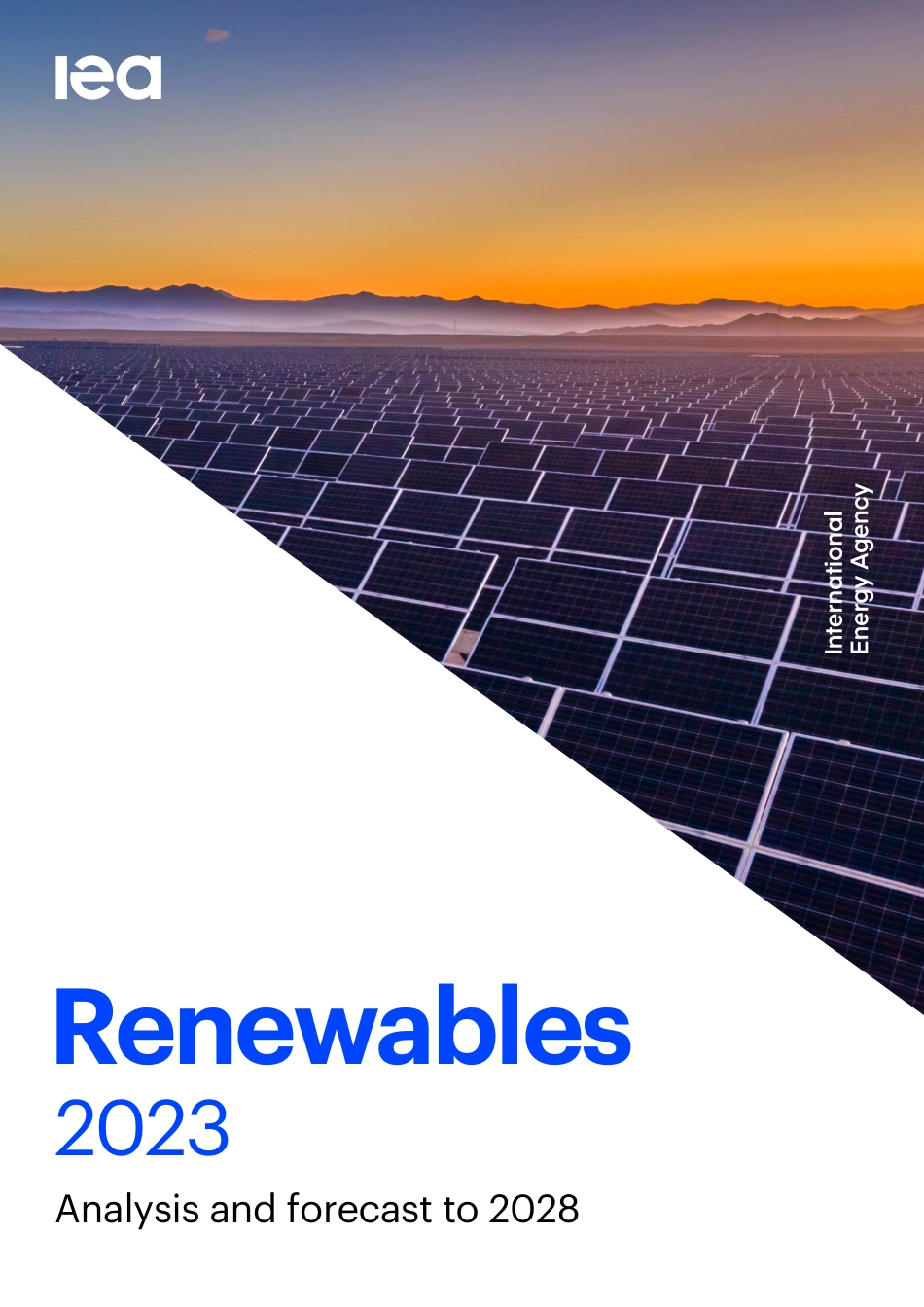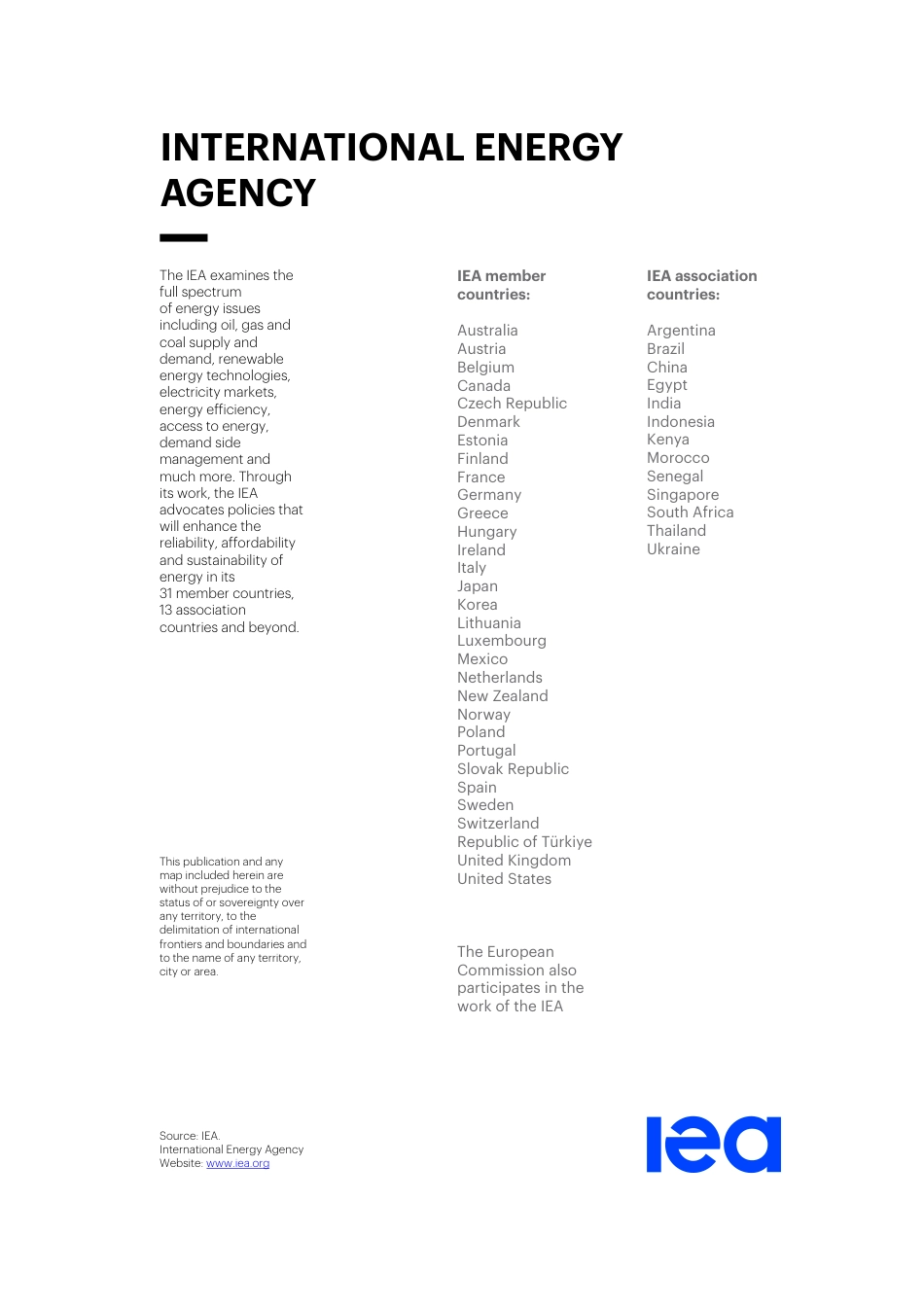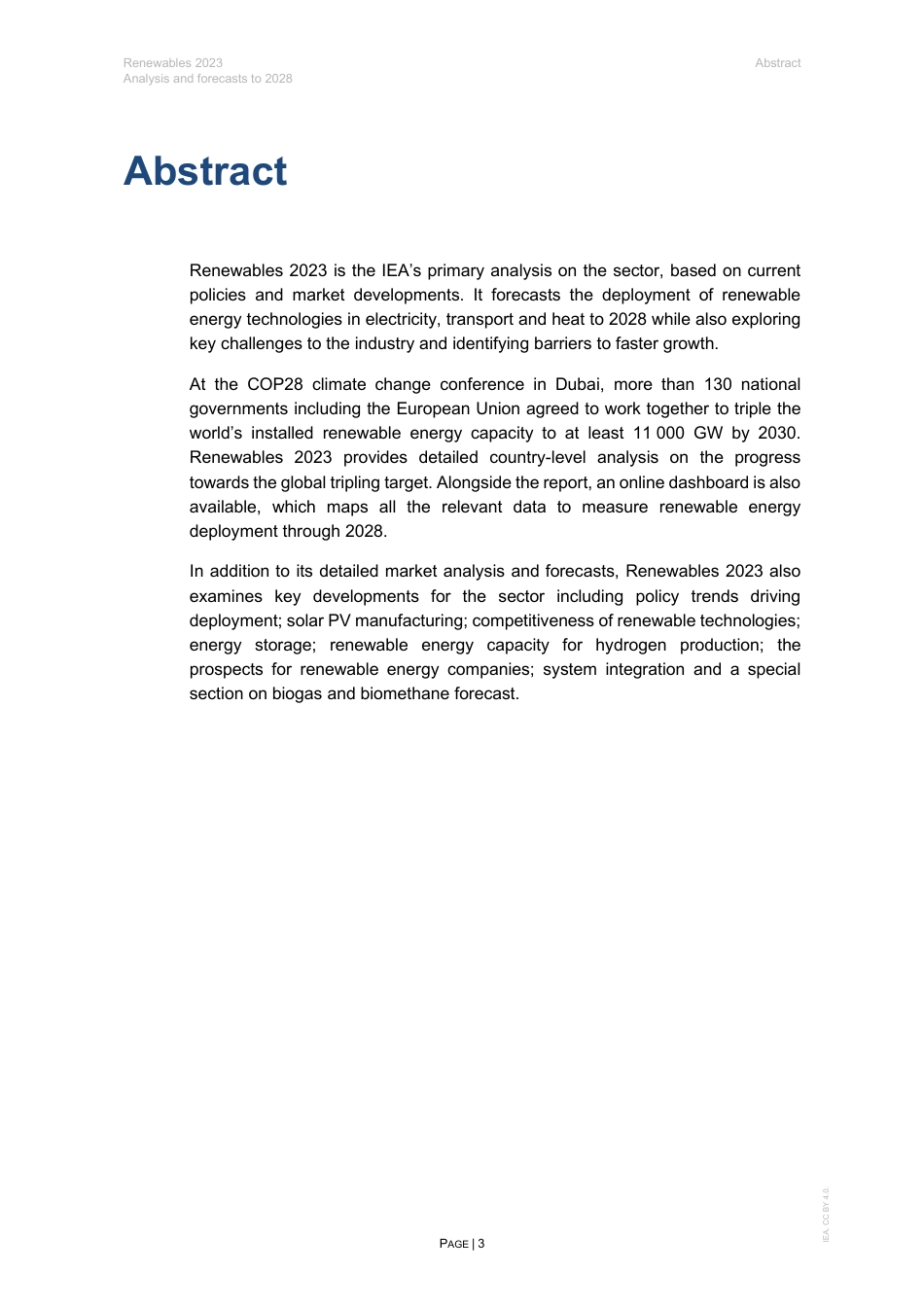Renewables2023Analysis and forecast to 2028The IEA examines the full spectrum of energy issues including oil, gas and coal supply and demand, renewable energy technologies, electricity markets, energy efficiency, access to energy, demand side management and much more. Through its work, the IEA advocates policies that will enhance the reliability, affordability and sustainability of energy in its 31 member countries, 13 association countries and beyond.This publication and any map included herein are without prejudice to the status of or sovereignty over any territory, to the delimitation of international frontiers and boundaries and to the name of any territory, city or area.Source: IEA. International Energy Agency Website: www.iea.orgIEA member countries: AustraliaAustriaBelgiumCanadaCzech RepublicDenmarkEstoniaFinlandFranceGermanyGreeceHungaryIrelandItalyJapanKoreaLithuaniaLuxembourgMexicoNetherlandsNew ZealandNorwayPolandPortugalSlovak RepublicSpainSwedenSwitzerlandRepublic of TürkiyeUnited KingdomUnited StatesThe European Commission also participates in the work of the IEAIEA association countries:Argentina BrazilChinaEgyptIndiaIndonesiaKenyaMoroccoSenegalSingapore South Africa Thailand UkraineINTERNATIONAL ENERGYAGENCYRenewables 2023 Abstract Analysis and forecasts to 2028 PAGE | 3 IEA. CC BY 4.0. Abstract Renewables 2023 is the IEA’s primary analysis on the sector, based on current policies and market developments. It forecasts the deployment of renewable energy technologies in electricity, transport and heat to 2028 while also exploring key challenges to the industry and identifying barriers to faster growth. At the COP28 climate change conference in Dubai, more than 130 national governments including the European Union agreed to work together...



